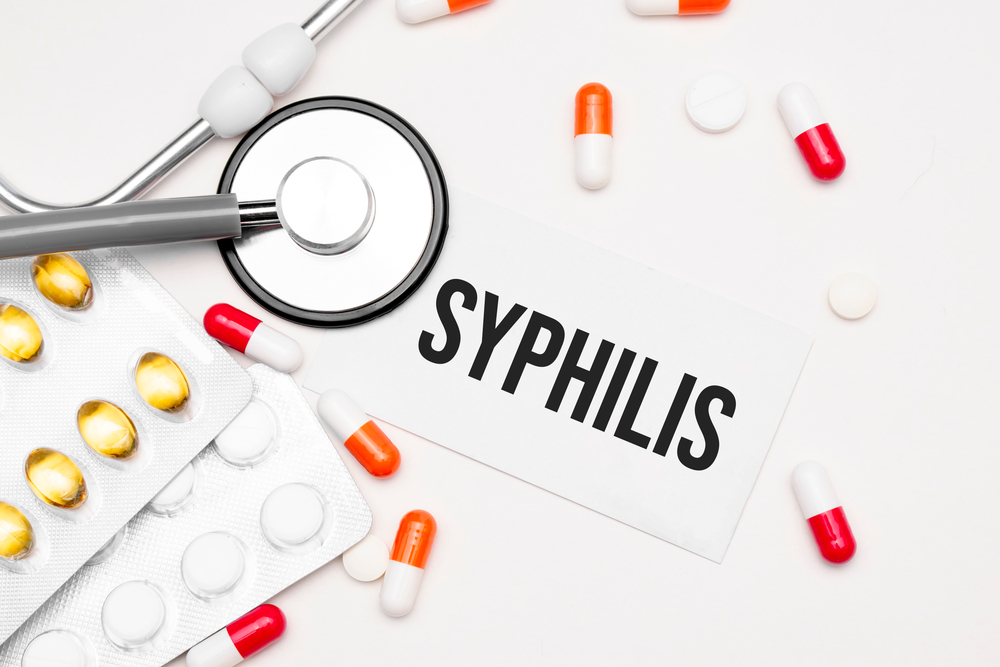Overview
Syphilis is a sexually transmitted bacterial infection. Left untreated, it can cause serious health issues, so it is essential to get tested if there is any concern that you may have it.
Key Facts
- Syphilis does not normally go away on its own
- It is important to get tested to confirm the diagnosis and receive treatment
- Getting early treatment ensures serious problems don’t develop later on and also helps reduce the spreading of the infection to other sexual partners.
Symptoms & Diagnosis
Symptoms
There aren’t always symptoms which is why it is important to get regularly tested. When there are symptoms, they are not always obvious and sometimes disappear, but you are still infected unless treatment is administered.
Symptoms can include:
- Small, painless sores or ulcers can appear on the penis, vagina, or around the anus. They can also occur in other places, such as the mouth.
- A red rash that affects the palms of the hands or soles of the feet
- Small skin growths can develop on the vulva or around the anus
- White patches in the mouth
- General tiredness, headaches, joint pains, a high temperature (fever) and swollen glands in the neck, groin or armpits
If left untreated, syphilis can spread to the brain or other parts of the body and cause serious long-term problems.
Diagnosis
Testing for syphilis involves a blood test and taking a sample of fluid from any sores using a swab.
Causes & Prevention
Causes
Anyone who is sexually active can be infected as syphilis is spread through close contact with an infected sore. This can happen during vaginal, anal or oral sex, or by sharing sex toys with someone who is infected.
In very rare cases, It is possible to catch syphilis if you inject yourself with drugs and have shared needles with somebody who is infected.
Prevention
There are some simple steps you can take to minimise your chances of getting syphilis:
- Use a condom every time you have vaginal, oral or anal sex
- Use a dental dam (a thin, soft plastic or latex) to cover the female genitals during oral sex or when female genitals touch or are rubbing together.
- Don’t share sex toys with other sexual partners. If you do share your sex toys, properly clean them or cover them with a new condom between each person who uses them.
To avoid being infected if you inject drugs, do not use other people’s needles or share needles with others.
Treatments
Treatment is simple, either:
- A single antibiotic injection into your backside. Sometimes, three injections are given weekly if you have had syphilis for an extended period.
- A course of antibiotics tablets if you cannot have the injection. Depending on how long you’ve had syphilis, you’ll have to take tablets for usually 2 or 4 weeks.
To ensure not passing syphilis on to other sexual partners, you should avoid all sexual activity and close sexual contact with others until at least 2 weeks after your treatment finishes.
Conclusion
Syphilis is a common but treatable sexual health condition. However, it is crucial that you test regularly if you are sexually active because if syphilis is undiagnosed for a long time, it leads to severe health conditions so the sooner you are diagnosed, the better.
MOST COMMON

